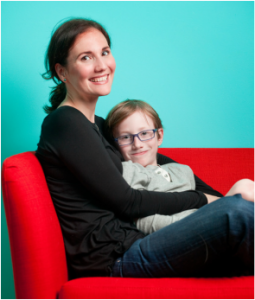A “real world” topic for many parents right now is on state testing. We live in Westchester County, known for it’s high taxes and expensive real estate, with a lot of high-performing school districts. Many of the publications that publish “Top US High Schools” report that Westchester has dozens of schools included on this list. There are many factors contribute to the success of our school districts. At the elementary level, it’s often “test scores.” Test scores on tests given to kids grades 3-8 across the country, before they enter high school. This topic is widely debated at home in Westchester and across the country, with some strongly in favor of the high standards and academic rigor and others who challenge it, feeling it’s an inappropriate tool/measure, with unfair decisions as outcomes and tax dollars/funding attached to flawed results. My personal feeling is that each child and family should make informed choices based on what they value. It’s a very personal decision to make with your own child in mind, politics aside.
Dr Stephanie O’Leary, based in Mt Kisco, NY discusses this topic on her site and with parents on her Facebook Page, Parenting in the Real World. https://www.facebook.com/CPintheRW/
 WHAT IS PARENTING IN THE REAL WORLD?
WHAT IS PARENTING IN THE REAL WORLD?
- A simple road-map to help you parent like a rock-star (even when you want to give up).
- A no-nonsense approach to help you navigate the chaos of the daily grind.
- Strategies to help ditch the “mommy (or daddy) guilt” that only makes your job harder.
- Easy ways to prepare your child for the challenges that exist out there in the real world...all while rediscovering joy in parenting!
Dr. Stephanie O’Leary: “Parenting in the Real World” was created as an approach that does not judge the reality of what parents face or dismiss the challenges that exist in all households. The trusted strategies I’ve developed will turn the volume up on respect, listening, and accountability while shrinking the daily dramas that sap joy and exhaust everyone. I have tested these tools at home and have seen them successfully transform parent-child relationships time and again in my clinical practice. I am excited to share them here so every parent has an opportunity to create positive change and build meaningful family connections (while getting everyone where they need to be, when they need to be there, and making sure the lunches are made).
 In the here and now, “Parenting in the Real World” offers simple ways to get through the day while liking your child as much as you love him or her. In the long run, the changes you make will build unbreakable parent-child bonds that will benefit you and your family for years to come.
In the here and now, “Parenting in the Real World” offers simple ways to get through the day while liking your child as much as you love him or her. In the long run, the changes you make will build unbreakable parent-child bonds that will benefit you and your family for years to come.
Is Your Child Opting Out? A Parent’s Guide to State Testing
By Stephanie O’Leary, Psy.D., Author of Parenting in the Real World
The time of year for standardized state testing has arrived and if you have school-age children, there’s no way to avoid this topic. Everyone has strong opinions when it comes to the issue of “opting out,” so how do you decide what’s best for your child? To help you make the best decision for your child, let me debunk some common parental concerns when it comes to opting out:
Will opting out spoil my child or teach them to avoid responsibility?
No. State tests are not real life situations and many parents and educators feel they are poorly constructed and developmentally inappropriate. You can teach your child to be responsible on a daily basis by having them do chores, manage more of their morning and evening routine, and face the natural consequences of practical slip-ups (i.e., forgotten permission slips, lunch bags, homework assignments).
Will opting out leave my child unprepared for future tests?
No. Our public education system includes plenty of opportunities for students to practice taking tests on a weekly basis in the classroom. Your child’s preparedness for future SAT or ACT exams has nothing to do with how often he or she sat for state tests starting in grade school. In fact, hearing year after year that scores don’t matter and that there’s no way to prepare may set a negative precedent and make it even harder for kids who take state tests to gear up when preparation does count and scores do matter.
Will there be negative consequences at school if my child opts out?
No. State laws vary, but national laws protect a parent’s right to opt their child out of standardized tests. Furthermore, even states that threaten to change district funding if opt-out rates exceed a certain percentage have never acted on those warnings. Might you ruffle a few feathers or get an ear-full from an administrator if you opt your child out? Sure.
Will opting your child out endanger their standing as a student or their ability to move on to the next grade?
- Absolutely not.
After you’ve made your decision, here are a few things to keep in mind:
You’ll need to write a letter. You can find resources online about specific information to include in your state, but a simple opt-out statement is really all you need to begin with. Click HERE to download the sample letter I use. - Your school district may have specific policies or procedures they ask you to follow. You can do your best, but at the end of the day sending a simple note to your child’s principal is sufficient to start the process.
- There’s no deadline, so if you’ve made your decision closer to the test date(s) send the letter in anyway—even if it’s the day of the test.
- Ask what your child will be doing while peers are taking tests (most will be asked to engage in quiet activities in an alternate classroom or location, such as an auditorium or gymnasium).
- Know that if you keep your child home from school on the day of testing he or she will miss instruction that’s provided after the testing is over.
- Most districts do not consider it a legal/excused absence if you list the reason as “opting out of standardized testing.”
- Most schools will allow you to keep your child home during the hour(s) of testing without an attendance penalty if your son or daughter arrives in time for educational instruction (you can call ahead and ask about timing for your child’s specific test).

About the Author:
Stephanie O’Leary, Psy.D. is a Clinical Psychologist located in Westchester County, NY specializing in Neuropsychology, mom of two, and author of Parenting in the Real World. She provides parents with a no-nonsense approach to navigating the daily grind while preparing their child for the challenges they’ll face in the real world. www.stephanieoleary.com



